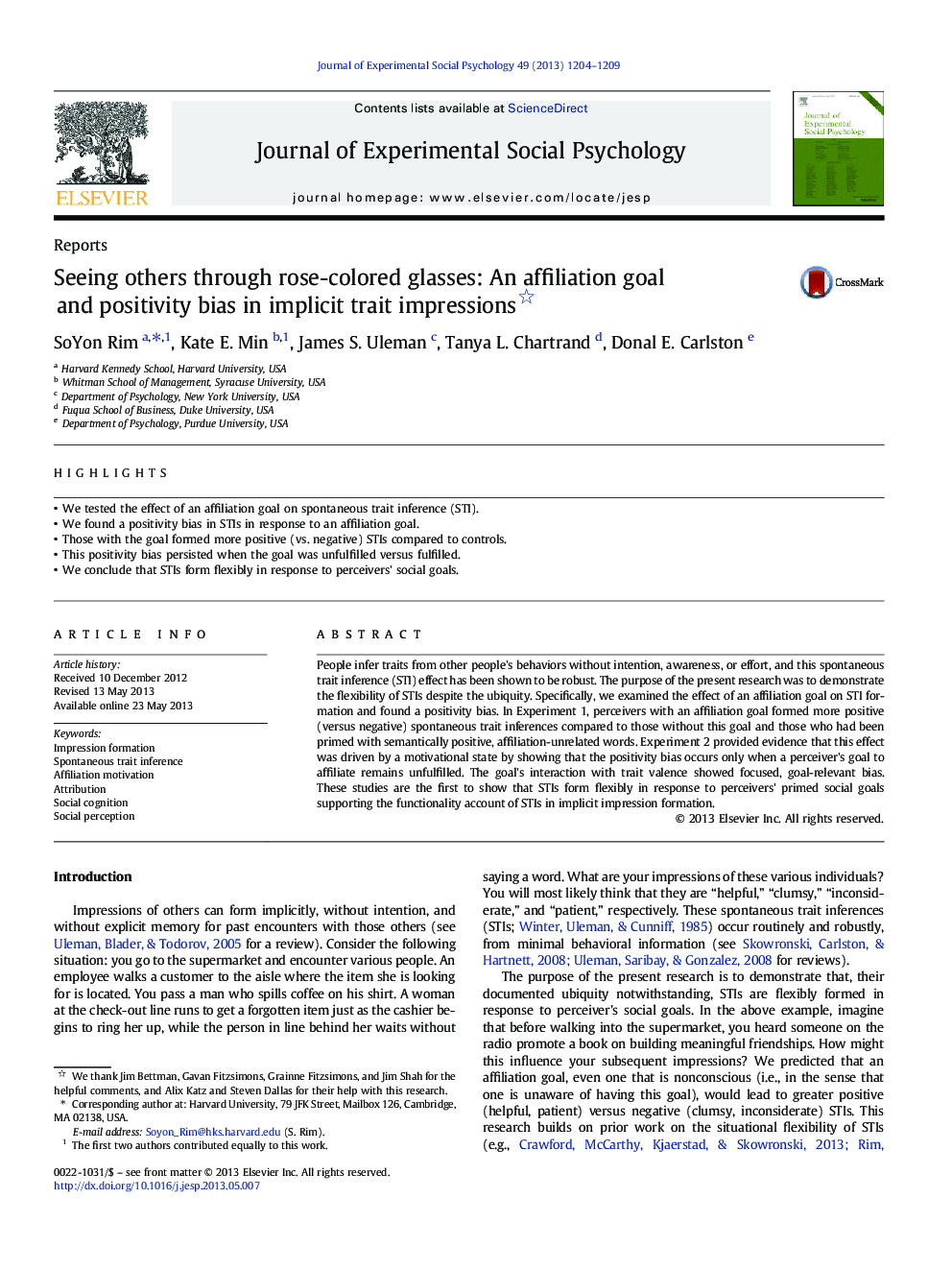| Article ID | Journal | Published Year | Pages | File Type |
|---|---|---|---|---|
| 10468572 | Journal of Experimental Social Psychology | 2013 | 6 Pages |
Abstract
People infer traits from other people's behaviors without intention, awareness, or effort, and this spontaneous trait inference (STI) effect has been shown to be robust. The purpose of the present research was to demonstrate the flexibility of STIs despite the ubiquity. Specifically, we examined the effect of an affiliation goal on STI formation and found a positivity bias. In Experiment 1, perceivers with an affiliation goal formed more positive (versus negative) spontaneous trait inferences compared to those without this goal and those who had been primed with semantically positive, affiliation-unrelated words. Experiment 2 provided evidence that this effect was driven by a motivational state by showing that the positivity bias occurs only when a perceiver's goal to affiliate remains unfulfilled. The goal's interaction with trait valence showed focused, goal-relevant bias. These studies are the first to show that STIs form flexibly in response to perceivers' primed social goals supporting the functionality account of STIs in implicit impression formation.
Keywords
Related Topics
Life Sciences
Neuroscience
Behavioral Neuroscience
Authors
SoYon Rim, Kate E. Min, James S. Uleman, Tanya L. Chartrand, Donal E. Carlston,
